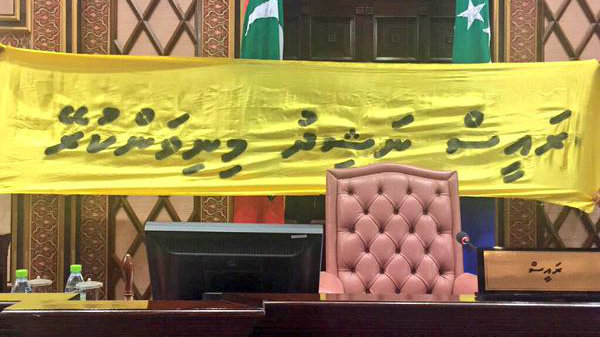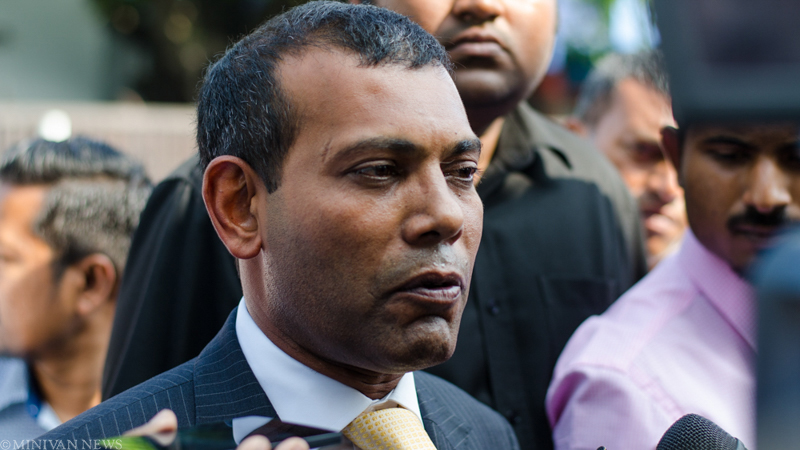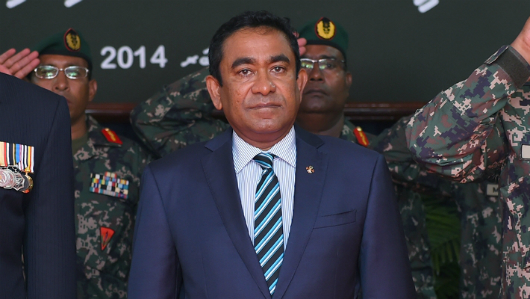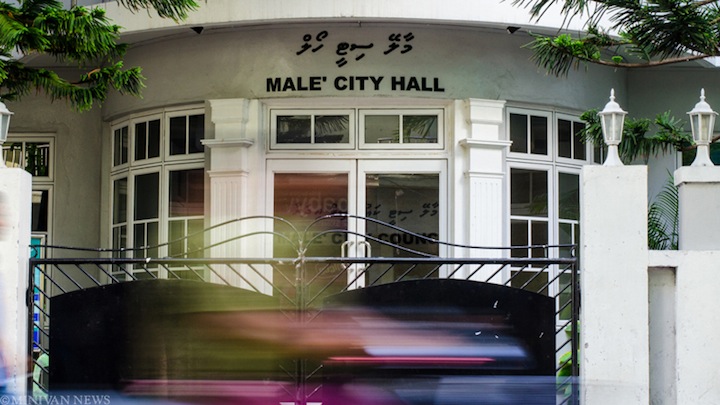The government has introduced corporate residence visas for foreign entrepreneurs who have invested more than US$50 million in the Maldives.
The new corporate resident Maldives scheme “aims to provide foreign investors in the Maldives with privileged and fast-track services,” according to the economic development ministry.
“My government will accord hospitality to all foreign investors who come here. We will accord safety and satisfaction to all of the foreign investors who are here. We would like foreign investors to feel like friends among friends, Maldivians among Maldivians,” said president Abdulla Yameen at a ceremony last night.
The government is seeking “to attract net worth high value investments” to the Maldives, he added.
The corporate resident visa holders will belong to “a privileged, elitist club,” Yameen said. Card holders will have permanent residency and will not have to wait in queues at immigration.
President Yameen handed out entitlement certificates under the scheme to the Bahrain Telecommunications Company (Batelco), Housing Development Finance Corporation, Seaplane Holdings, Mauritius Commercial Bank, and Hitachi.
Yameen said foreign investments are essential for the government to realise its ambition of “transforming the economy” through diversification and ‘mega projects.’
“This is the only way we believe third world countries, small countries like Maldives, can prosper and transform our economy,” Yameen said in his remarks in English.
The opposition has previously criticised the lack of significant foreign investments despite assurances from the government following the passage of its flagship special economic zones legislation in August last year.
The main opposition Maldivian Democratic Party recently alleged corruption in a deal with Dubai Ports World to develop a commercial port and free trade zone near Malé.
The opposition also contends that the previous administration’s abrupt termination of a contract with Indian company GMR to develop the international airport has irreparably damaged investor confidence. The Indian infrastructure giant is seeking US$803 million as compensation.
“New horizons”
Maldivians at first looked at foreign investments with “suspicion,” Yameen said, but “those days are long past gone.”
“We are looking at foreign investments as part and parcel of our economic development. We welcome foreign investments as partners in our developmental work,” he said.
Yameen said “the most important, most successful, thriving businesses flourishing across the Maldivian economy belong to foreign investors, either joint venture investors or 100 percent foreign investors.”
“There are no strings attached to foreign investments in the Maldives. Foreign investments can come in 100 percent foreign or it could be a collaborative effort with joint venture Maldivian partners,” he said.
“Foreign investors have naturally permeated into the Maldivian economy, that is why today we open our doors with gracious welcome to all the foreign investors.”
The government has invited foreign investors to consider “challenging and attractive investment opportunities” such as the iHavan transhipment port project.
Referring to the Hulhumalé bridge project, Yameen said the reclaimed island “is going to be an ample, resource-bound area for investors, be it housing or be it infrastructure provision.”
The government is also “looking at a brand new international airport that is capable of handling around seven million passengers” and exploring “new horizons of economic development.”
“Maldivian youth aspirations are tremendous. They are enormous. It is from housing to jobs and also to improving their wellbeing. The only way to do this is to attract our doors to all foreign investments who want to invest in major, major investments here,” he said.
The US$300 or US$400 million bridge project is “enormous” for the Maldives with its per capita income of about US$7,000, Yameen said.
“What it entails is not only growth, what it entails is assurance of jobs for Maldivian youth,” he said.
The government is committed to improving the livelihoods of the people, “no matter what you hear on the roads of Malé.”
Yameen also appealed to government staff to be “hospitable, speedy and efficient in delivery of service.”
Service provision should be “seamless,” he continued, “so no hiccups, no nonsense, that is the only way the so-called one-stop shop is going to work.”
Economic returns in the Maldives is “as good as any you can have,” he said, noting that investments in tourism can be recovered in four or five years.
The Maldives is also “a low tax country” with a comparatively low business profit tax, he said.
“This is a safe place for investments, this is safer than the safest place elsewhere on the earth,” Yameen said.
Likes (4)Dislikes
(4)Dislikes (0)
(0) 






